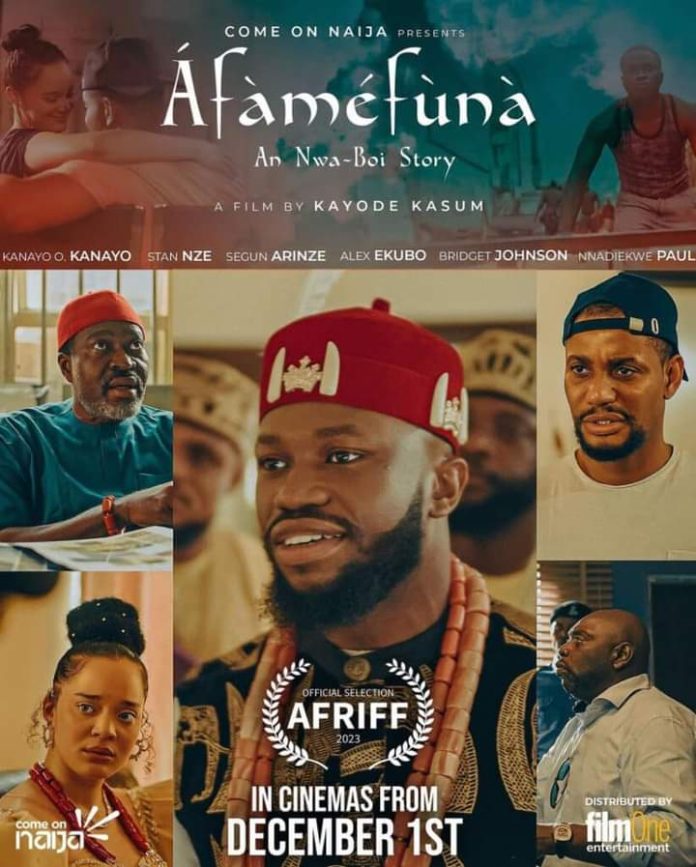I have just finished seeing Afamefuna on Netflix together with my wife.
It is a good piece of art for various reasons. The first of these reasons for me as an Igbo man is the film’s decent attempt to document and portray the timeless Igbo apprenticeship system.
The second reason follows from the first and feeds from the same ethnic sentiment, but this time also because I have myself built a business from scratch, and to a degree, passed the knowledge, network, and perhaps wealth to a few persons. So it did not stop at being a thing of joy to see our method succinctly captured and rousing nostalgic feelings as I watched. The film further made me feel seen and appreciated following Afamefuna’s story from Boi to Oga, and at each step recalling my own steps in the system. From apiriko and oso afia to settlement and taking in a fleet of his own boys, I relived my story from times under the sun and rain in Ikeja Computer Village to the air-conditioned store in Ajah-Lekki Express and a couple of direct and indirect employees.
I, however, did not undergo formal Igbo apprenticeship. Ejechalum school, puta, bido na isi—ejero m boi-boi; awata m business na anya. I went to school, came out, and started from everything beginning—I used gra gra combined with the advantage of education to learn business. So I cannot speak authoritatively to the rudinwnra of the system. But much as I cannot, I think the concern Asoegwu raised is worth looking into. Is it ever done in Igbo apprenticeship that, for whatever reason, a younger apprentice is first settled before an older apprentice when the case of theft isn’t involved?
My piece on Afamefuna does aim for a critical appraisal. To this end, there must be on or two thematic and artistic concerns I must have taken note of, like the subtitle that sometimes watered down the import of the Igbo proverbs, but it isn’t my objective to discuss them today. I only want to express my enjoyment of the film. My wife and I had to pause so many times to either discuss the plot, the actors, and the story or to make reference to our own historical similarities to the acts. And, yes it course, we briefly debated the DNA thing. I will consult my cousins and relatives and associates I know in the apprentice system and see what they have to say about settling a junior apprentice before a senior.
Afamefuna is altogether a nice watch. It is also a good attempt at telling the Igbo story that should be encouraged and further built on. You should see it.
Goodluck Chiemelie Okechukwu




